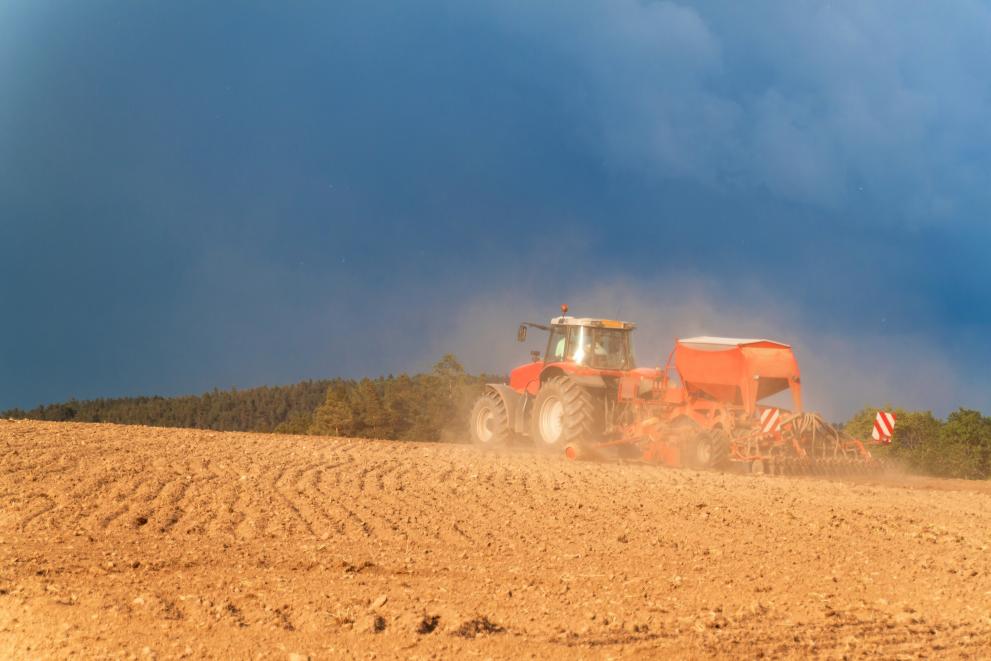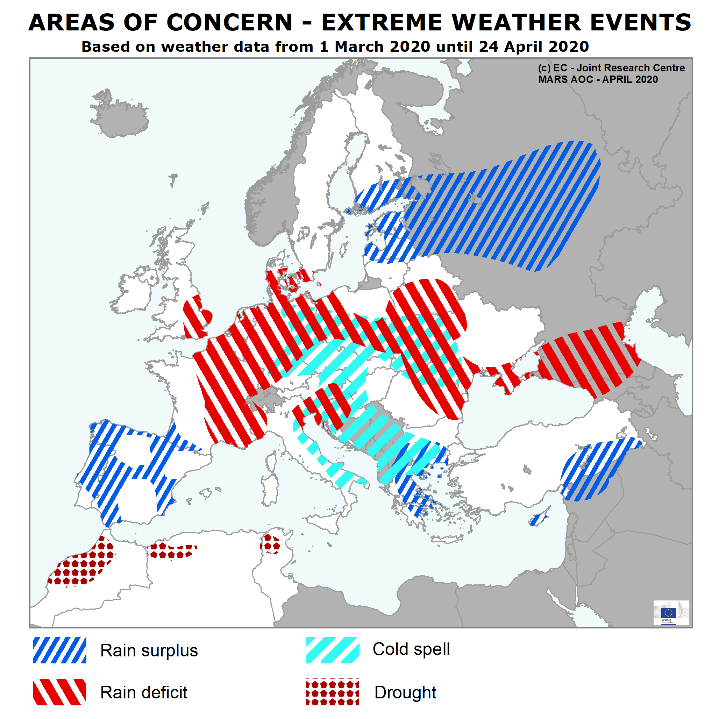
According to the April 2020 issue of the JRC MARS Bulletin - Crop monitoring in Europe, which was published today, western Europe experienced one of the driest starts to spring since 1979, after an exceptionally wet winter. Large parts of Poland, Ukraine and Romania have also faced dry conditions since the end of winter.
Winter crops in most of these regions are still in good condition, but more rain is needed to sustain a positive yield outlook. However, the very dry upper soil layers are having a negative impact on the sowing and emergence of spring and summer crops.
Cold spells at the end of March and beginning of April challenged sowing and emergence in much of central and south-eastern Europe.
A marked rainfall surplus was welcomed in the Iberian Peninsula, Greece, Cyprus and south-eastern Turkey.
While labour availability remains a key concern, we have found no evidence that COVID-19 has had any major impact on the sowing of spring and summer crops. So far, the supply of seed, fertiliser and pesticides seems to be adequate and no immediate disruptions are expected.
The yield forecast presented in this issue of the MARS bulletin are still mostly based on historical trends. It is acknowledged that they bear a large margin of uncertainty associated with the rain deficit currently faced in large parts of Europe. Increasingly accurate forecasts can be expected as the season unfolds.

MARS Bulletin global outlook - North Africa
According to the JRC MARS Bulletin in the Global outlook series, on northern Africa, expectations are compromised for cereals in Morocco and western Algeria, and there is some concern for barley in Tunisia.
In much of the Maghreb region, the start to the season was jeopardised by the absence of rains, followed by a persistent rainfall deficit and above-average temperatures.
In Morocco and western Algeria, cereals underperformed during the vegetative phase and experienced accelerated development during flowering and grain filling.
By contrast, crops in eastern Algeria and northern Tunisia benefited from higher water supply in autumn and/or during the agronomic season, resulting in adequate or even favourable biomass accumulation.
Further information
- JRC-MARS bulletins
Readers who wish to be alerted promptly when a new Bulletin is issued can subscribe to an email list through the JRC's Agri4Cast ToolBox - For a global overview of agricultural anomalies, readers are referred to the April edition of the JRC's Anomaly Hotspots of Agricultural Production (ASAP)
Related Content
JRC-MARS bulletins - crop monitoring in Europe
April edition of the JRC's Anomaly Hotspots of Agricultural Production (ASAP)
Details
- Publication date
- 27 April 2020
